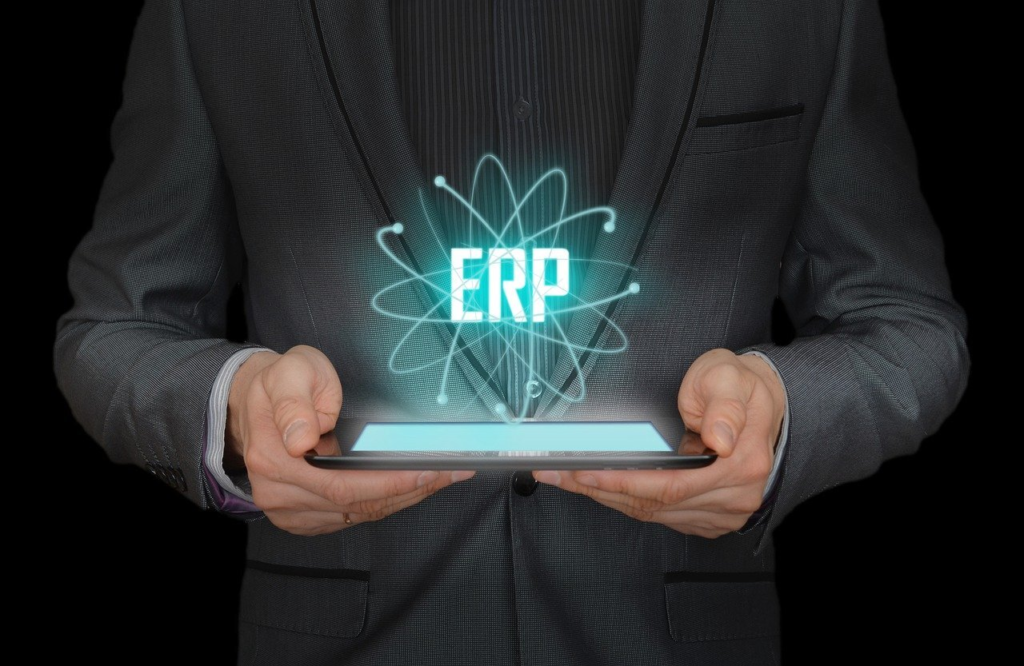Running a business can feel like a constant juggling act—especially when you have to manage sales, inventory, finances, and customer support all at once. That’s where ERP systems come in. ERP stands for Enterprise Resource Planning, and it’s not just for big companies anymore. With the right tools, even small businesses can work smarter, not harder. This article will walk you through everything you need to know about ERP in a way that’s easy to understand and apply—no tech degree required.
What Is an ERP System and Why Should You Care?
An ERP system is a type of software that helps your business bring all its important operations into one place. Instead of using a separate tool for accounting, another for inventory, and another for customer tracking, ERP combines everything. Think of it like one big dashboard where you can see everything that’s happening in your company.
But why should you care? Because without an ERP system, most small businesses spend hours each week switching between tools, entering the same data in different places, or fixing costly mistakes. With ERP, your business becomes more efficient. You save time, reduce errors, and make smarter decisions because you can see the full picture in one place.
How ERP Helps Small Businesses Grow Fast
Small businesses often work with limited resources, and that’s exactly where ERP shines. A good ERP system can automate daily tasks like billing, tracking inventory, managing orders, or handling employee schedules. This automation means you and your team can spend more time growing your business and less time doing repetitive work.
Imagine you’re running a small online store. With an ERP system, you can connect your sales, inventory, shipping, and customer service all in one place. If a customer places an order, the system can automatically update your stock, send the invoice, and even notify the shipping team—no need to enter anything manually. This kind of automation saves hours and helps you handle more orders as your business grows.
Simple ERP Tools Even Small Teams Can Use
The good news is you don’t need a huge IT department to start using ERP. There are many simple ERP tools designed specifically for small teams and startups. These tools focus on being easy to use, budget-friendly, and quick to set up.

Cloud ERP That’s Easy to Start With
Cloud-based ERP solutions are perfect for small businesses. You don’t need to install anything or worry about software updates. Everything runs online. These tools are great because they let your team work from anywhere, even if you’re not in the office. Some popular cloud ERP systems include Odoo, Zoho ERP, and NetSuite for small businesses. They come with plug-and-play features and dashboards that are easy to understand.
Mobile ERP for Busy Owners
Mobile ERP apps are a game changer if you’re always on the move. Whether you’re meeting a client, checking in on your team, or just reviewing your sales while sipping coffee, mobile ERP tools let you do it all from your phone or tablet. You can access reports, approve orders, or send invoices anytime. This flexibility helps small business owners stay connected without needing to sit at a desk all day.
Budget-Friendly ERP for New Businesses
Starting a business means watching every dollar. The best part is that many ERP platforms now offer affordable packages for startups and micro-businesses. Some even offer free tiers with essential features. Tools like ERPNext, Bitrix24, and Dolibarr offer low-cost or open-source ERP options that don’t compromise on features. These systems are great when you want professional-level tools without the high price tag.
Why ERP Makes Your Job Less Stressful
Let’s be honest: running a business can be stressful. You have customers calling, orders piling up, and bills to pay. An ERP system helps reduce that stress by organizing your work. With everything in one place, you no longer have to search through spreadsheets or email chains to find what you need. You’ll know exactly how much inventory you have, which invoices are unpaid, and what tasks your team is working on.
Also, when things are automated, you worry less about forgetting something important. The system can send reminders, create reports, or flag issues before they become real problems. That means more peace of mind for you and a better experience for your customers.
What to Look for in a Good ERP System
Not all ERP systems are created equal. When choosing one, look for tools that match your business needs—not just fancy features. A good ERP for a small business should be:
- Easy to use – You shouldn’t need hours of training to get started.
- Flexible – It should grow with your business and let you add new features later.
- Affordable – Pick a system that fits your current budget.
- Cloud-based – So you don’t have to worry about hardware or tech issues.
- Good support – Make sure help is available when you need it.
Some systems offer free demos or trials, which is a great way to test them before committing. Choose one that feels natural to use and doesn’t require tons of technical setup.
Easy Steps to Start Using ERP Today
You don’t need to overhaul your entire business in one day. Getting started with ERP is easier than you might think.

Pick the Right Tool for Your Business
Start by thinking about your biggest pain points. Are you struggling with tracking sales? Managing inventory? Handling payroll? Once you know what you need most, you can pick an ERP system that focuses on those areas. Use keyword research tools like SEMrush or Ahrefs to see which ERP tools are trending in your industry, especially in the U.S. market.
Set Up the Basics First
Don’t try to use every feature at once. Focus on the basics like setting up customer records, uploading products or services, and connecting your accounting. Once those are working smoothly, you can expand to other modules like inventory, HR, or marketing. Starting simple helps your team adjust faster and avoids overwhelming them.
Train Your Team the Easy Way
Your ERP system is only as good as the people using it. Train your staff in small steps. Create simple how-to guides or short video tutorials for each part of the system. Let them learn by doing. When your team feels confident using the system, everything runs better.
Common Mistakes to Avoid When Using ERP
One big mistake small businesses make is trying to do too much too soon. It’s easy to get excited and start using every module the software offers. But that often leads to confusion and burnout. Another common error is not updating the system regularly. ERP software needs good data to be useful—if no one updates the information, the system becomes useless. Lastly, don’t skip the training. Even the easiest ERP systems require a learning curve. Make sure everyone knows how to use it correctly from the start.
The Bottom Line
ERP is no longer just for big corporations with giant teams. Today, even a solo entrepreneur or a 5-person startup can use ERP tools to save time, reduce mistakes, and grow faster. Whether you want cloud-based flexibility, mobile access, or a system that fits your budget, there are options out there that are made just for small businesses like yours.
Start small. Focus on what you need most. And don’t be afraid to test a few tools before choosing the one that fits. With the right ERP system in place, you can finally stop juggling and start focusing on what really matters—growing your business smartly and stress-free.







